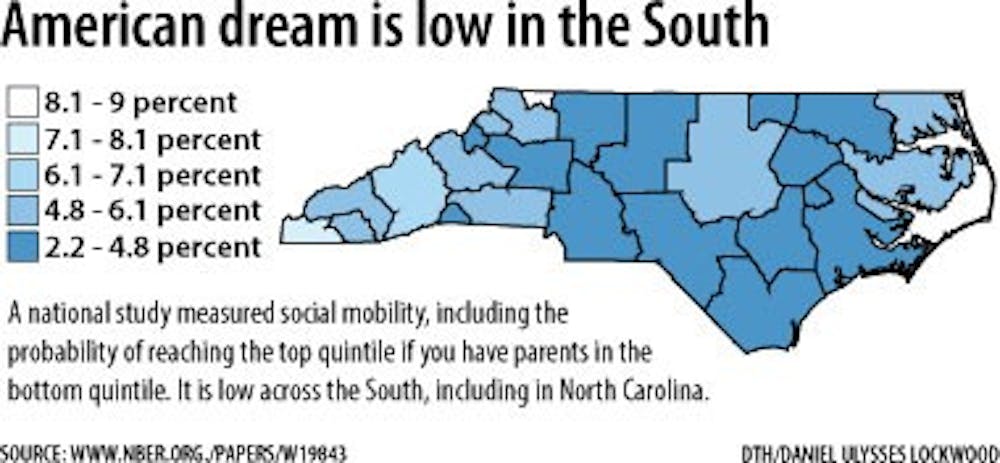A recent study shows that upward mobility — the ability to move out of poverty and up the socioeconomic ladder — depends heavily upon where you live, with some N.C. cities ranking near the bottom.
The study, conducted by researchers at Harvard University and the University of California-Berkeley, suggests social mobility in the United States is lowest in southern states, ranking Charlotte among the least socially mobile cities in the country. Only 4.4 percent of those born into the bottom fifth of national income distributions in Charlotte ever reach the top 20 percent in income — a drastic low compared to cities like San Jose, Calif., and Salt Lake City, Utah, which boast percentages of 12.9 and 10.8, respectively.
Raleigh was also near the bottom, with a rate of 5 percent.
“Areas with low mobility tend to have worse education, worse segregation, worse inequality, worse social capital and worse family structure,” said Alex Bell, a Harvard research assistant who helped with the study. “Some of those factors tend to be lower in the South, and it’s difficult to say why that is.”
Social capital is the degree of collaboration and networking in a community.
Bell said for Charlotte, education, social capital and family structure are a bit below national averages, while income and racial segregation and inequality are extremely high — which could explain why such a small percentage of low-income Charlotte residents reach high-income status.
Gene Nichol, the director of the UNC Center on Poverty, Work and Opportunity, said the study came as no surprise, referring to the South as “the native home of American poverty.”
“We have more poor people, and we have more politicians who are utterly untroubled by it,” he said.
Nichol blamed North Carolina’s poor social mobility on recent state legislation, including cuts to unemployment benefits — but said the state could bolster social mobility by changing policy.



